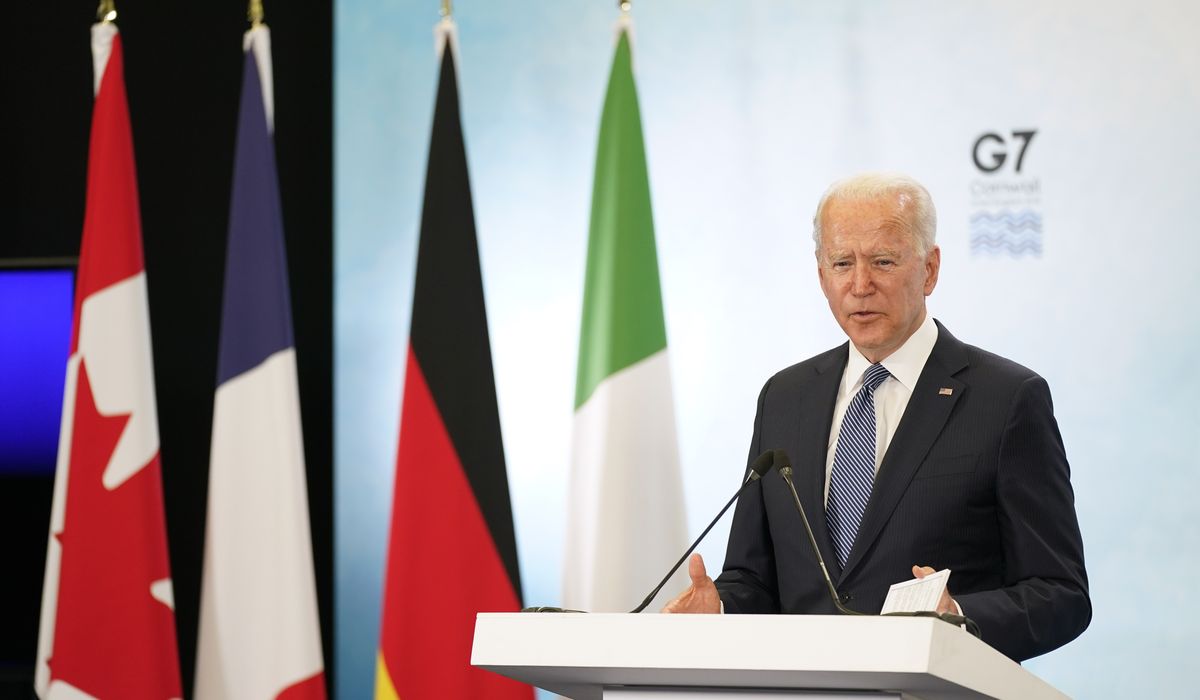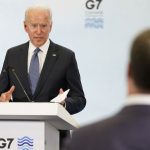
The leaders of the Group of Seven industrial democracies took aim Sunday at China’s vast “Belt and Road” infrastructure program for the developing world, pledging to establish a rival financing program that is private sector-based and, in President Biden’s words, “much more equitable.”
Mr. Biden touted the G-7’s proposed “Build Back Better World” financing project approved during the weekend summit in Cornwall, England, at a press briefing Sunday. The initiative takes its name from the president’s own campaign agenda branding in 2020.
U.S. leaders have watched with concern as Chinese President Xi Jinping’s “Belt and Road” program has funneled tens of billions of dollars into underwriting roads, bridges, ports and other infrastructure projects in countries across Asia, Eastern Europe, sub-Saharan Africa and Latin America.
The investments have given Beijing enormous diplomatic and financial leverage, but critics say many of the projects have proven uneconomical and have left recipients facing punishing debts to Beijing and to the Chinese contractors who do much of the work.
Although the details are still to be worked out, Mr. Biden claimed the G-7 countries stand ready to provide $40 trillion in the coming years for infrastructure programs across the developing world.
“China has its Belt and Road Initiative, and we think that there’s a much more equitable way to provide for the needs of countries around the world,” Mr. Biden said.
Despite some tough words on Chinese foreign policy and its human rights record in the G-7 communique, Mr. Biden insisted the U.S. is “not looking for conflict” with Beijing.
“Where we can cooperate, we’ll cooperate,” he said. “Where we disagree, I’m going to state it frankly.”







